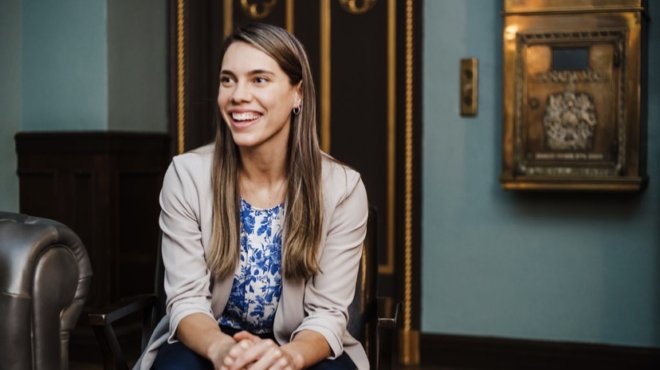
Faculty of Health graduate wants to help dismantle disparities in health care
By Mark Campbell
It was hard for an accomplished athlete like Kiera Duffie (MSc’20) to cope with an anterior cruciate ligament (ACL) injury when she was 15. But a second ACL injury at the age of 17 was devastating. Forced to give up basketball and volleyball—her passions—she wondered how she would get through these life-changing experiences until she met Ralph Manning, a physiotherapist who changed her life.
“He not only helped me get physically and mentally stronger but also helped me reconnect with other passions such as science and music,” Duffie recalls. “The fact that he worked so hard to understand and support me is why I became interested in health care and in becoming a physiotherapist.”
After receiving her undergraduate degree, Duffie was compelled to enroll at Dalhousie to earn her master’s. The university offered proximity to her family in Prince Edward Island, a diverse community—which was important to her as a biracial student, and an exceptional educational experience. “What I loved about the program is not just that it focused on that evidence-based practice, which is essential to our profession, but also that it offered insights on all aspects of practice from fantastic guest lecturers,” she says. “The connections I made with the lecturers became an invaluable resource I will have throughout my career.”
An ally for equity
Duffie says her Dalhousie experience was beneficial in other ways. She helped design a research study on the benefits of aquatic therapy among patients with Parkinson’s disease and she participated in the Inclusion and Equity Committee, which gave her insights on how she could be an ally. “It opened the door to have courageous conversations with patients as to how their health journeys have been impacted by the side of the privilege coin they land on,” she says. “It also created an urgency to recognize and dismantle the systems that create disadvantages for marginalized populations, vulnerable communities, high-risk groups, priority neighbourhoods, or hard-to-reach populations.”
Dalhousie’s Faculty of Health aims to address these disparities by creating more equity-based opportunities in health fields. This year, donations to the Dalhousie Fund are being directed to support for students from underrepresented populations.
At the end of her studies, Duffie was delighted to learn that she had received a scholarship. She is grateful for the generosity of donors not just for helping her to start her life, and career, as a new grad, but also for the confidence their gift has instilled in her. “When I first graduated, I struggled with imposter syndrome and doubted my abilities,” she says. “I kept coming back to the support I received from donors and alumni through the scholarship. To me, it means they trust us and are proud of us, and that was the wind at my back to get out there and start meeting the needs of patients.”
Strengthening her community
How Duffie will meet that need is still taking shape. Currently, she works at Soldier’s Memorial Hospital in Middleton, seeing community members in an outpatient setting. But she is interested in exploring other opportunities with Nova Scotia Health that involve persistent pain, and in exploring ways to serve the community and promote inclusion. One initiative she envisions is a gentle movement program that meets people where they are in their journey to be more active. “I’m looking forward to being an advocate in the Annapolis Valley,” she says. “My Dalhousie experience and the support of alumni and donors are helping me to jumpstart that work.”